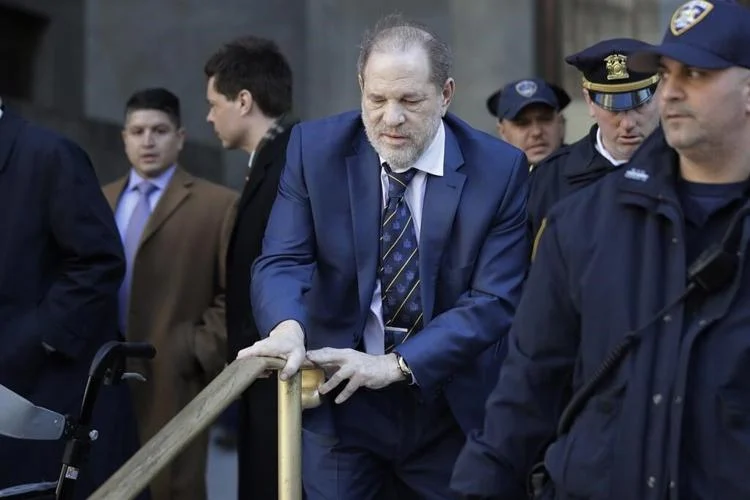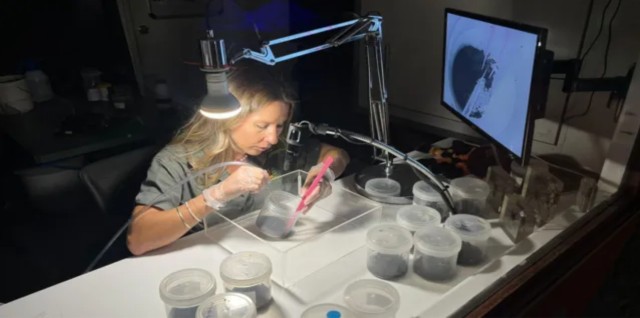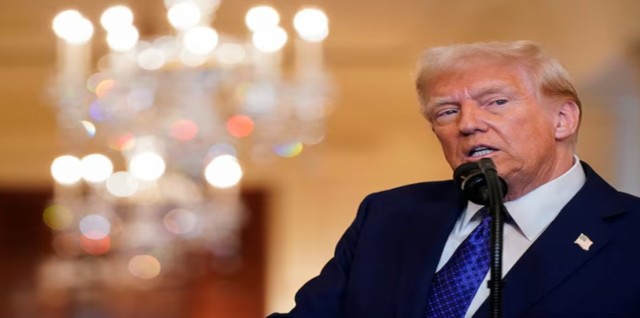
FILE - Harvey Weinstein leaves a Manhattan courthouse after closing arguments in his rape trial in New York, Friday, Feb. 14, 2020. New York's highest court has overturned Harvey Weinstein's 2020 rape conviction and ordered a new trial. (AP Photo/Seth Wenig, File)
Harvey Weinstein, the former movie producer whose sexual assault conviction in New York was a landmark moment in the #MeToo movement, had his conviction overturned by an appeals court on Thursday. Since his central role in the #MeToo movement emerged in 2017, most of the numerous civil cases filed against him have either been resolved through settlements or dismissed. However, Weinstein still faces legal challenges, including the prospect of a retrial in Manhattan.
Weinstein's only conviction in Los Angeles for the rape and sexual assault of Italian actor Evgeniya Chernyshova will keep him incarcerated despite the reversal of his New York conviction. He received a 16-year sentence in that case, and an appeal is pending. Meanwhile, Chernyshova herself has filed a civil lawsuit against Weinstein, seeking damages for emotional distress resulting from her 2013 rape at a Beverly Hills hotel. Weinstein's attorneys have contested the lawsuit, arguing that it undermines her credibility as a witness.
Additionally, actress Julia Ormond, known for her roles in films like "Legends of the Fall" and "Sabrina," filed a lawsuit against Weinstein in New York in 2021. She accused Weinstein of sexual battery in 1995 and of sabotaging her career in Hollywood. Although her lawsuit is one of the most recent ones against Weinstein, it leveraged New York's Adult Survivors Act, which allowed victims of sexual assault to file lawsuits even after the statute of limitations had expired. Weinstein has denied Ormond's allegations.
Ashley Judd, another prominent figure in the #MeToo movement, sued Weinstein in 2018, alleging defamation, sexual harassment, and violation of California's unfair competition labor law. However, a federal judge dismissed the sexual harassment claim in 2019, stating that Weinstein and Judd did not have the necessary employment relationship for the law to apply. Judd's lawsuit remains inactive but could be reopened if her legal team files a motion.
On the other hand, some lawsuits against Weinstein have been dismissed, including one filed by actress Rose McGowan, one of Weinstein's earliest accusers. McGowan alleged that Weinstein engaged in racketeering to silence her and damage her career before she publicly accused him of rape. However, a federal judge dismissed her lawsuit in 2021, and it cannot be refiled.
The majority of lawsuits against Weinstein were resolved through a settlement in 2021 as part of the bankruptcy proceedings of The Weinstein Co., his former film company. The settlement included a victims' fund of approximately $17 million for about 40 women who had sued him. However, some plaintiffs objected to the settlement, claiming that the compensation was insufficient considering the harm caused by Weinstein. Despite the legal battles, many survivors and advocates believe that societal condemnation, rather than legal action, has been more effective in holding Weinstein accountable for his actions.















